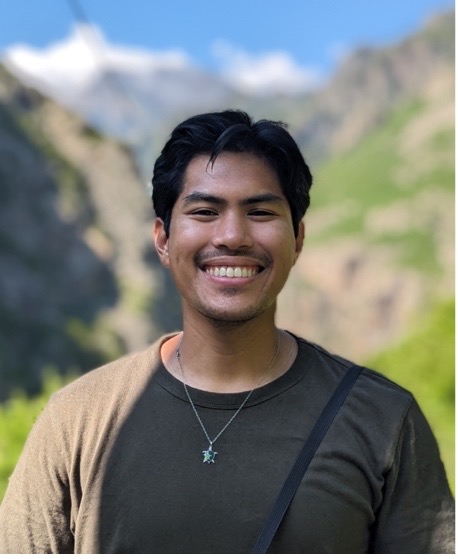GMS PhD Spotlight: Gian Sepulveda

Gian Sepulveda is a PhD candidate in the Graduate Program in Genetics & Genomics (GPGG). His research in the lab of Associate Professor of Biochemistry & Cell Biology Alla Grishok focuses on the interaction between the sole H3K79 methyltransferase, DOT1L, and the proto-oncogene c-MYC. He is also a Community Catalyst Center mentor in the gPLUS and gGLOBAL affinity groups. Gian defended his dissertation in March 2024 and will graduate in May 2024.
Read more about Gian below!
What did you complete your dissertation research on and how did you settle on that topic?
My dissertation focuses on the interaction between the sole H3K79 methyltransferase, DOT1L, and the proto-oncogene c-MYC. More specifically, I studied how DOT1L regulates c-MYC-driven transcription by regulating the c-MYC degradation cycle on chromatin. I went into my PhD wanting to study something related to molecular mechanisms and signal transduction, but I also realized how important the lab environment is for having a positive experience as a doctoral student. I was fortunate enough to join the lab of Dr. Alla Grishok, where the project I ended up pursuing explores the unexpected role of DOT1L on c-MYC, and how the perturbation of this biological process can potentially translate into disease states. I was fortunate to be under her mentorship and guidance and in a lab environment that fosters friendship and discourse.
Why did you choose to do a PhD?
During my bachelor’s degree, I was able to explore many different research topics ranging from worm phylogenetics to circadian rhythms and T-cell signaling. These research experiences fostered my curiosity and inspired me to pursue a PhD. At the same time, because of the wide range of topics I studied, it left me confused as to what particular topic I would like to focus on. I thought that my time as a PhD student would be the perfect time to figure that out.
How would you describe a typical day as a PhD student?
It really varies, especially during the beginning stages of a project. I used to be in the lab before 9:30 a.m., but nowadays, I come in at around 10:30 am. I am not a morning person, so I tend to keep the more routine work in the morning and the work that requires more brain power, like reading papers and planning future experiments, in the afternoon. I try to leave the lab before 7 p.m., depending on when I get there.
What is one of your best memories from the time in your PhD?
The whole lab went to Glasgow, Scotland, for the C. elegans conference in 2023. It was my first international conference, and it truly was a blast. Dancing in the club with a Nobel prize winner was a fever dream.
Did you face any unexpected challenges during your time in your program? How did you overcome them?
Sometimes in a project, there can be differing opinions on the direction it should take. Clear communication and transparency are key to resolve them. This is something I learned to be more conscientious of during my PhD.
What are your next steps and your plans for your future?
In the short term, I will be working under my current PI as a postdoctoral fellow to finish the revisions for our paper. I plan to then transition into an industry position, since I have fallen back in love with benchwork. When my love for performing experiments wanes, I think I will explore a role in science communication.
Do you have any advice for future PhD students or anything else you would like to share?
Don’t forget to do what you love. Don’t lose yourself to work. Maintain a good balance between work and play. It will keep you sane.
What do you like to do for fun in Boston?
Since the pandemic, I’ve started riding my bike as my main means of transportation. I love going around Boston and experiencing the outdoors on two wheels. My friends also know me as a musical/theater enthusiast. I have been making good use of my student status through Student Rush and student memberships in various theater performances in the city.